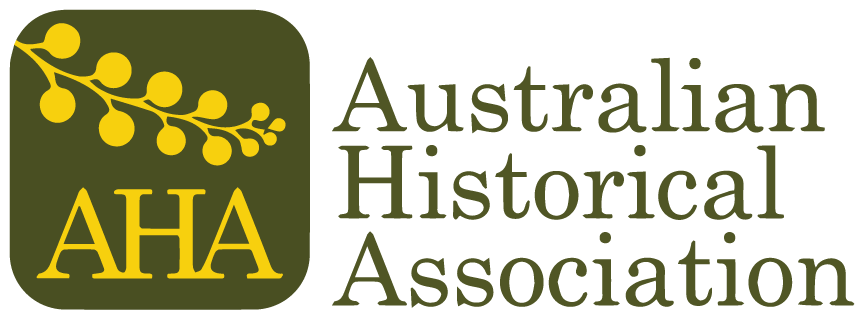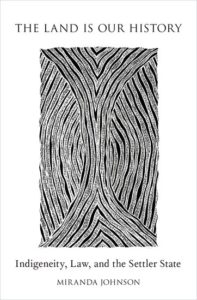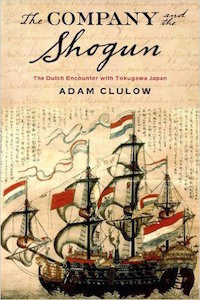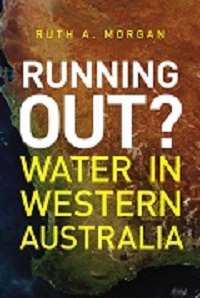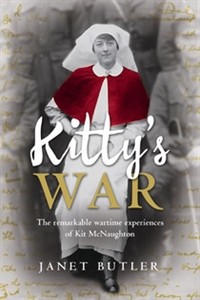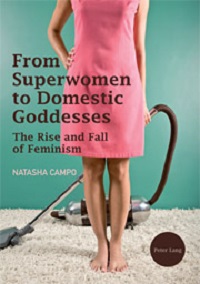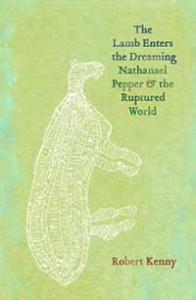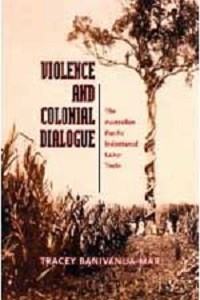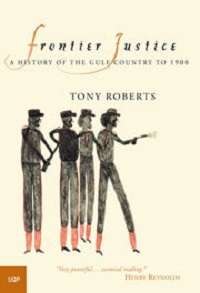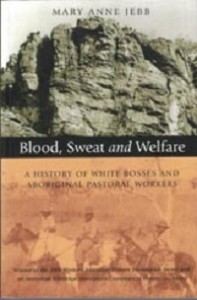2022 W.K Hancock Prize Winner
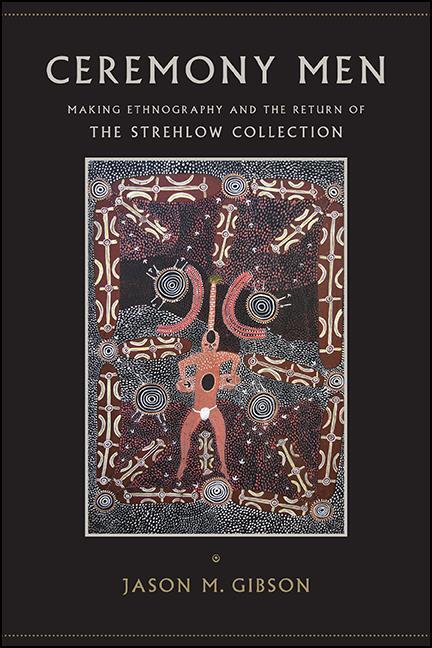 Jason Gibson, Ceremony Men: Making Ethnography and the Return of the Strehlow Collection (SUNY Press, 2020)
Jason Gibson, Ceremony Men: Making Ethnography and the Return of the Strehlow Collection (SUNY Press, 2020)
Citation: There are a number of different layers to this sophisticated ethnographic-historical treatment of the Strehlow archive. The first is the story of Strehlow and how he went about collecting material, and his relations with the Aboriginal communities he came into contact with. To Gibson’s credit though, he only dwells on the biography of Strehlow to the extent that it elucidates the interactions between the researcher and the researched, and the methods he employed. Strehlow does not therefore become the centre of the story, overwhelming the participants. On the contrary, it’s Strehlow’s archive and the collaboration that ensues that becomes the centre of the story.
The second is the re-introduction of these collections back into the Aboriginal communities from whence they came and the story of how individuals within those communities reacted to and interacted with the material. In the background, we have the story of the author, historian-ethnographer who is discreet but nonetheless present, travelling from one part of central Australia to another with the recordings, photos, and documents, collaborating with individuals who made that interaction possible. Gibson, ever aware of the complexities and difficulties that might arise from these artefacts, welcomes the interpretations provided by his collaborators to give a fuller picture of both the encounter with Strehlow as well as their own culture, which is on the wane and even lost in many parts of Australia. These interactions breathe new life into the artefacts as they then become a source out of which Indigenous and non-Indigenous relations can be explored. The Aboriginal informants are thus given back their rightful positions in the interpretation and handling of this material.
The third layer, emerging out of the second, is a better understanding not only of the importance of dance, song, and sacred objects for the communities Strehlow interacted with, but of their meaning for the communities they touched, allowing us to read and understand the Strehlow collection in a new light. What clearly comes out of all of this is that the individuals Strehlow interacted with had agency. They negotiated ‘these histories and interactions on their own terms’. This is a brilliant piece of scholarly historical investigation/ethnographical collaboration that turns the Strehlow archive on its head, placing the Indigenous communities on which the archive was based centre-stage, and giving their role the rightful place it deserves. This is an extraordinary first book, well-written, thoughtful, nuanced, and respectful in its approach. It is a work fully deserving of the prize.
Judges: Philip Dwyer (Newcastle), Jane Lydon (UWA), Diane Kirkby (La Trobe)
2020 W.K. Hancock Prize Winner
Laura Rademaker, Found in Translation: Many Meanings on a North Australian Mission (University of Hawai’i Press)
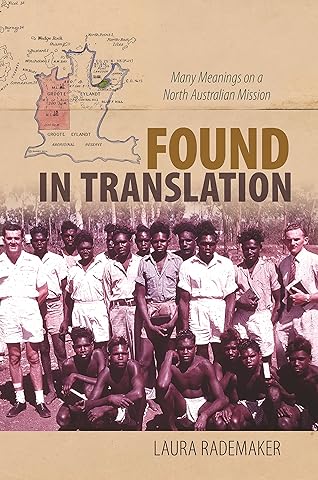
Citation:
Found in Translation is a rich and evocative account of language and cross-cultural relations on the archipelago of Groote Eylandt following the establishment of the Angurugu evangelical mission in the 1940s. Coming relatively late in a settler society where missions were highly dependent on government, this one straddled the official policies of assimilation and self-determination. Rademaker’s perceptive and nuanced reading suggests that missionaries and the Ainindilyakwa-speaking people each used language to evade or engage with each other in a series of selective ‘mistranslations’. She explores the Aboriginal-missionary relationship through studies of spoken and written English, the attempts to use the mother tongue as a language of the heart and the ways that Groote Eylanders adapted hymns to their own singing traditions. Rademaker raises important questions about the act of translation and missionary forms of colonisation and offers an impressive model of ways in which the binaries of colonisers and colonised can be bridged. Carefully plotted, assured and constantly engaging, this book opens important new perspectives on the entangled history of cross cultural relations.
Judges: Stuart Macintyre (UMelb, Chair), Katie Holmes (La Trobe), Matt Fitzpatrick (Flinders).
2018 W.K. Hancock Prize Winner
Miranda Johnson, The Land Is Our History: Indigeneity, Law, and the Settler State (Oxford University Press)
In The Land Is Our History, Miranda Johnson has produced an ambitious, original and imaginative history exploring land, indigeneity, legal rights and activism across three settler-colonial nations. Thinking transnationally, Johnson explores legal and public discourses to draw together a raft of distinctive events and personalities into a vast and coherent canvas. She weaves nation-based histories of indigenous-settler conflict over land into wider networks and power structures, making sense of seemingly disparate developments in indigenous activism. Archival documents and oral accounts highlight the strength and moral authority of indigenous leaders who worked to gain acknowledgement of traditional ownership of land, and to interrupt and influence public debates around national identity.
Johnson writes with precision, flow and economy. The work has a compelling argument, convincingly showing the complex and sophisticated ways indigenous activisms functioned to change settler attitudes towards land and indigenous belonging. An exemplary history, The Land Is Our History brings important new insights to a significant topic in both the past and the present.
2016 W.K. Hancock Prize Winner
Adam Clulow, The Company and The Shogun: The Dutch Encounter with Tokugawa Japan (Columbia University Press, 2014)
In the broadest sense, The Shogun and the Company deals masterfully with how European colonialism worked on the ground in Asia. Innovatively organized around key diplomatic incidents or moments of conflict between the Dutch East India Company and Japan’s Tokugama regime in the two centuries after 1609, the book shows that would-be colonizers were forced to accommodate themselves to the expectations, protocols, and requirements of a powerful Asian state, and not the other way around. Disrupting historiographical assumptions about the inevitability of European domination, Clulow provides a riveting account of the difficulties of cross-cultural diplomacy in the early modern era, focusing on moments of failure or misunderstanding rather than success. He reveals a context in which Dutch military technology was rarely decisive, and one in which Dutch attempts to claim sovereignty in Asia were undercut by overlapping claims on both land and sea. Built on transcribed sources in multiple languages and making its arguments through comparisons and counter-examples from far afield, Clulow’s work is both brilliantly original and impressively synthetic.
2016 W.K. Hancock Highly Commended
Ruth Morgan, Running Out? Water in Western Australia (UWA Publishing, 2015)
In Running Out, Ruth Morgan takes a seemingly narrow topic—the history water in a single Australian state—and weaves a complex tale that accommodates diverse standpoints and scales. Settler and indigenous perspectives appear alongside changing attempts to balance political, scientific and public demands, while Morgan’s focus shifts fluently between the vast scale of the planet’s environment and the small scale of local and regional history. At once a study of changing ideas about water and appropriate water usage, a history of how those ideas constrained or shaped policy choices, an analysis of changing environmental conditions and environmental science, and a survey of how ideas and policies around water came to affect individual lives and social structures, Morgan has written a model environmental history. In a remarkably engaging way, her work tackles the history of one of our most intractable problems and suggests how crucial it is to learn from the past.
.
2014 W.K. Hancock Prize Winner
Janet Butler, Kitty’s War: The Remarkable Wartime Experiences of Kit McNaughton (University of Queensland Press, 2013)
Kitty’s War tells the story of a young Australian nurse, Sister Kit McNaughton, who departed for the Great War in 1915. Like many other Australians in uniform, she served in Lemnos, Egypt and the Western Front. By the war’s end, Kit McNaughton had become a pioneering plastic surgery nurse, working to restore the ruined bodies of AIF troops in France. More than three thousand Australian women served as nurses in the Great War, and Butlers’ analysis of Kitty’s journals offers rare insight into the human trials, suffering, adventure, professionalism and transformation that characterised the war-time experience of those women. As the publishing industry takes full advantage of the Great War centenary now approaching, Kitty’s War is a refreshing shift from the stories of men and military. Kitty’s War is a remarkable first book, the product of Janet Butler’s recent PhD research at La Trobe University. It is driven by a powerful narrative, which so often provokes and provides new and unexpected perspectives on the war. Articulate, expressive, extensively researched, Butler’s work is a pleasure to read and a significant addition to the canon of Australia’s war histories.
2012 W.K. Hancock Prize Winner
Joint Prize Winners
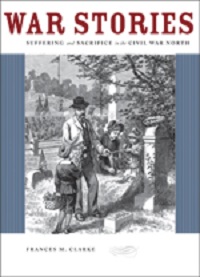 Frances M. Clarke, War Stories: Suffering and Sacrifice in the Civil War North (University of Chicago Press)
Frances M. Clarke, War Stories: Suffering and Sacrifice in the Civil War North (University of Chicago Press)
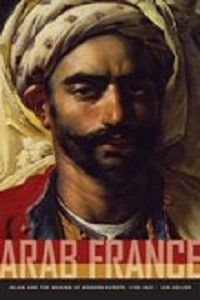 Ian Coller, Arab France: Islam and the Making of Modern Europe, 1798-1831 (University of California Press)
Ian Coller, Arab France: Islam and the Making of Modern Europe, 1798-1831 (University of California Press)
.
2012 W.K. Hancock Prize Commendation
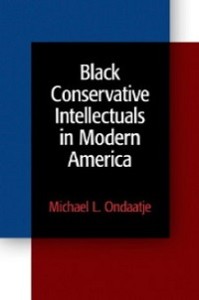 Michael L. Ondaatje, Black Conservative Intellectuals in Modern America (University of Pennsylvania Press)
Michael L. Ondaatje, Black Conservative Intellectuals in Modern America (University of Pennsylvania Press)
.
2010 W.K. Hancock Prize Winner
Dr Natasha Campo, From Superwomen to Domestic Goddesses: The Rise and Fall of Feminism (Peter Lang, 2009)
Natasha Campo holds a PhD in history from La Trobe University and currently works in the National Centre for Australian Studies at Monash University. The panel of judges were impressed by her work’s originality in conception and in scholarship. This is a lively and relevant history that is innovative in its willingness to tackle contemporary history. It is well situated in the secondary literature, formulates clear questions and develops a strong argument.
.
2010 W.K. Hancock Prize Commendation
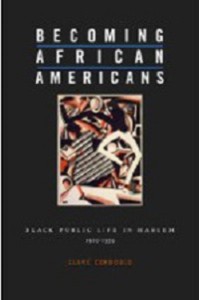 Clare Corbould, Becoming African Americans: Black Public Life in Harlem, 1919-1939 (Harvard University Press, 2009)
Clare Corbould, Becoming African Americans: Black Public Life in Harlem, 1919-1939 (Harvard University Press, 2009)
Citation :
Clare Corbould is a senior lecturer in the History Department at the University of Sydney, and holds a doctorate from that institution. The panel admired the way her history marshalls a complex argument that works on a number of levels –’ social, racial, cultural – to produce a rich and compelling read.
.
2008 W.K. Hancock Prize Winners
Robert Kenny, The Lamb Enters the Dreaming: Nathaniel Pepper and the Ruptured World (Melbourne: Scribe Publications, 2007)
The winner is Robert Kenny, The Lamb Enters the Dreaming: Nathaniel Pepper and the Ruptured World (Melbourne: Scribe Publications, 2007). This book tells the story of Nathaniel Pepper, a man of the Wotjobaluk people in the Wimmera, north-western Victoria, who was baptised in 1860 by Moravian missionaries. Pepper’s celebrity as a successful convert and evangelist, at a time when the Aboriginal people were beginning to be seen as a race providentially doomed to extinction, is a leading theme throughout. The deeply-rooted antiquity of European ideas is frequently explored, but so too is the Aboriginal world-view, and the “wrench in the sky” caused by confrontation between old and new Aboriginal understandings.
It is a remarkable and compelling piece of work. Based on wide reading and beautifully written, it presents a highly original account of race-relations in a remote part of settled Australia during the first decades of colonial self-government, the period between the great age of imperial humanitarianism and the consolidation of the White Australia policy. These are decades not often explored for their own sake by historians of Australian race relations, and Kenny’s treatment is masterly.
Pepper’s conversion provides an opening not only for the exemplary consideration of one incident but also for a much wider and bolder consideration of understandings of belief and spirituality in nineteenth-century Australian society, both European and Aboriginal. There is a clear understanding of the limits of scholarship when it comes to some of the more profound mysteries of the human condition. Indeed, this is one of the lessons to be taken from the book. In some excellent character sketches, for instance, full allowance is given for complex and unfathomable motive, among both Europeans and Aborigines.
The book enlarges our understanding of the rich creativity of Aboriginal engagement with the invading culture. In doing so it also shows a highly imaginative sense of place and landscape. A first-person narrative style is used to great advantage, and held in fine and effective balance with highly skilled critical judgement. It is a brilliant book.
2008 W.K. Hancock Prize Highly Commended
Tracey Banivanua-Mar, Violence and Colonial Dialogue: The Australian-Pacific Indentured Labor Trade (Honolulu: University of Hawaii Press, 2007
This book examines the Pacific islander labour trade and islanders’ experience in Queensland between the 1860s and the first years of the twentieth century. It focuses especially on the question of violence, and it makes very thorough and scholarly use of original sources in the area, including some not hitherto used, in exploring the significance of violence for the larger processes of colonisation. It shows excellent understanding and control of theory in building upon existing scholarship.
Arranged conceptually around vertical colonial practice and the horizontal world the islanders’ made, the book evokes very effectively the impact of violence on individual lives and communities, during transportation, employment and, in the end, repatriation. The book is of international significance for the light it casts on the on-going relationship between colonial power and agency among indigenous, colonised peoples. Banivanua-Mar has made a major intervention in the field especially by revealing the ways that violence adhered not just to the ‘frontier’, and to original chaotic moments of but also to its later, more regulated and legally sanctioned forms.
The literary standard is high, and it is especially effective in its presentation of individual experience. There is a real immediacy and tangibility about the depiction of encounters between labourers on the one hand and traders and employers on the other. This is especially important in conveying violence as blunt reality, beyond and above more abstract scholarly concerns.
2006 W.K. Hancock Prize Winner
Tony Roberts, Frontier Justice: A History of the Gulf Country to 1900 (University of Queensland Press
Underpinned by meticulous research and informed by the author’s awareness that he is analysing ‘a momentous time’ in both Aboriginal and Australian history, Frontier Justice traces the history of the Gulf country from the first contacts between the Indigenous occupants and European incomers to 1900.
Roberts has constructed a detailed and evocative account of ‘the most colourful and lawless part of Australia’s last frontier’, based on extensive archival research, accounts from participants and the families of participants, and his own familiarity with the region. The power of this book derives from its comprehensiveness and balance. The author has identified a ‘catalogue of killings’ that includes fifty-three incidents on the Northern Territory side of the border in which there were multiple Aboriginal deaths. While this litany of horror is central to Roberts’ account, the author also recognises the presence of non-combatants, the hardships experienced by Europeans as they claimed the Gulf country, and variations in the actions and beliefs of individuals within those groups who imposed, witnessed and suffered from frontier justice.
Roberts’ compelling account of the Gulf Country is a significant contribution to the history of northern Australia and the history of Australian race relations.
Judges: Andrew Bonnell, Clive Moore, Joanne Scott
2004 W.K. Hancock Prize Winners
Joint Prize Winners
Mary Anne Jebb, Blood, Sweat and Welfare: A History of White Bosses and Aboriginal Pastoral Workers (University of Western Australia Press)
Warwick Anderson, The Cultivation of Whiteness: Science, Health and Racial Destiny in Australia (Melbourne University Press)
The W.K. Hancock Prize for 2004 is shared by Mary Anne Jebb for her first book, Blood, Sweat and Welfare: A History of White Bosses and Aboriginal Pastoral Workers (UWA Press) and Warwick Anderson, for his first book, The Cultivation of Whiteness: Science, Health and Racial Destiny in Australia (Melbourne University Press). The authors in different ways exemplify characteristics prized by the historian for whom the Australian Historical Association named this prize for a first book on any field of history.
Hancock never tired of telling his students that good historians must be prepared to get their boots dirty seeing the country they wrote about. Mary Anne Jebb must have worn out many pairs of seven league boots as she traversed the vast Kimberley region in search of information about the Aboriginal workers in the pastoral industry. Blood, Sweat and Welfare is a powerfully written book, based on careful and lengthy research. Bringing her story well into the 20th century, Jebb has greatly extended scholarly knowledge of the role of indigenous workers in the pastoral industry and compliments work previously done on the Pilbara region. One of the great strengths of the book is its skilled use of interviews taped by the author. She brings to life both European and Aboriginal people who would probably otherwise be lost to the written record. While much has been written about violence and discrimination on the pastoral frontier, Jebb’s work gives a personal face to what often seemed impersonal forces at work.
 Another characteristic prized by W.K. Hancock was what he called ‘span’, a breadth of vision beyond the usual scope of historical monographs. Warwick Anderson’s book, The Cultivation of Whiteness exemplifies a span that many mature scholars might envy. It is a fascinating, well written and thoroughly researched book which clearly enunciates the ideology undergirding concepts of ‘the white man’ in the Tropics. Drawing on relatively neglected sources from doctors, medical journals and other health professionals, Anderson covers a century of theorizing about race and environment in Australia. It provides a treasure trove of information for scholars working in this area.
Another characteristic prized by W.K. Hancock was what he called ‘span’, a breadth of vision beyond the usual scope of historical monographs. Warwick Anderson’s book, The Cultivation of Whiteness exemplifies a span that many mature scholars might envy. It is a fascinating, well written and thoroughly researched book which clearly enunciates the ideology undergirding concepts of ‘the white man’ in the Tropics. Drawing on relatively neglected sources from doctors, medical journals and other health professionals, Anderson covers a century of theorizing about race and environment in Australia. It provides a treasure trove of information for scholars working in this area.
A third characteristic beloved of Professor Hancock was longevity—not just his own, though he was still turning up to work every day until well into his eighties, but long-lived works of scholarship. In the opinion of the judging panel, both Blood Sweat and Welfare and The Cultivation of Whiteness are destined for decades of useful life on library shelves.
.
2004 W.K. Hancock Prize Highly Commended
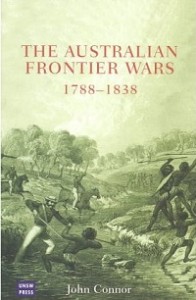 John Connor, The Australian Frontier Wars: 1788–1838 (University of New South Wales Press)
John Connor, The Australian Frontier Wars: 1788–1838 (University of New South Wales Press)
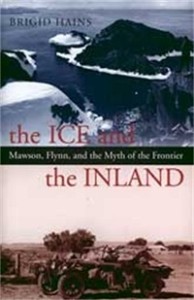 Brigid Hains, The Ice and the Inland: Mawson, Flynn, and the Myth of the Frontier (Melbourne University Press)
Brigid Hains, The Ice and the Inland: Mawson, Flynn, and the Myth of the Frontier (Melbourne University Press)
Judges: Norman Etherington, Bobbie Oliver, Michael Sturma
.
2002 W.K. Hancock Prize Winner
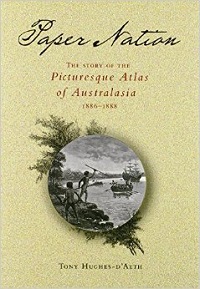 Tony Hughes-d’Aeth, Paper Nation: The Story of the Picturesque Atlas of Australasia 1886-1888 (Melbourne University Press, 2001)
Tony Hughes-d’Aeth, Paper Nation: The Story of the Picturesque Atlas of Australasia 1886-1888 (Melbourne University Press, 2001)
Judges: Hilary Carey, Brian Fletcher, Alison Holland
.
2000 W.K. Hancock Prize Winner
 John Ferry, Colonial Armidale (University of Queensland Press, 1999)
John Ferry, Colonial Armidale (University of Queensland Press, 1999)
